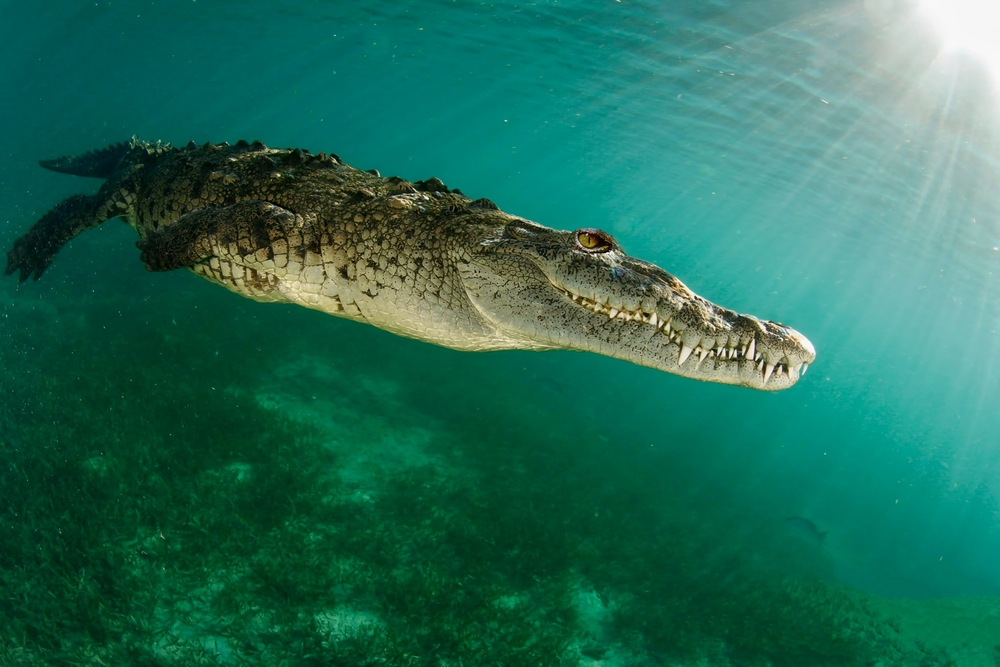BLOG
The firm’s latest Miami Herald “Real Estate Counselor” column was authored by Christyne D. Santisteban. The article, which is titled “Crocodile in Community Generates Effective Response Chronicled in TV Newscasts,” focuses on a couple of recent news reports on 7 News Miami (www.wsvn.com) that illustrated how potentially dangerous wildlife incursions can impact local communities. It reads:
. . . The first report chronicled how residents at the Bay Colony Club in Fort Lauderdale woke up to scary sight: a scaly saltwater crocodile lounging the day away on their dock. The large and potentially dangerous reptile does not seem perturbed by the TV news crew and all the attention, as it casually sunbathes on the community’s floating dock.
“Slightly shocked. I wasn’t anticipating coming down and seeing one of these guys sitting here out on the dock. But I mean it is South Florida. It’s par for the course,” aptly notes one of the community’s residents.
The reporter highlights that the crocodile has a tag on its tail and a transponder tracking device on its back, and the Florida Fish and Wildlife Conservation Commission had been called for assistance. Importantly, the story also features an interview with association president Nicole Esperson, who explains that FWC wildlife officers have already responded and indicated they are tracking the crocodile and would not be removing it from its natural habitat.
“We’re worried about little dogs that are walking on the dock. We sent an email out to residents to not walk their dogs on the dock, but we’d like to see him swim away and go to a different canal,” she says in the report.
The next day the crocodile was back on the dock, and the station returned for a follow-up and another interview with Esperson.
“Somebody from the FWC said that she is the same female that was seen at the Pompano Pier. She’s been making her way through Pompano and Northern Fort Lauderdale,” Esperson explains while also noting that the FWC officials have indicated it should be allowed to remain undisturbed. “She’s a threatened species, and it could cause harm to her during the transfer,” she explains.
From these reports and interviews, it appears that the Bay Colony Club association president and board of directors have done a great job with their initial response to both the crocodile and the ensuing news coverage. The outreach to the FWC was immediate, and apparently so was the initial email to the owners and residents.
The community’s directors and management should continue to monitor the crocodile’s movements and keep residents apprised, and they should also consider this potentially dangerous wildlife incursion as a warning that requires further attention. They would be well advised to follow up with the FWC and contact professional wildlife experts/trappers for their input and recommendations regarding any permanent and prominent warning signs, physical barriers and other measures that may also be in order.
Associations contending with potentially dangerous wildlife should always take a proactive approach toward studying and addressing the issue. They should seek guidance from qualified legal counsel, notify the FWC to request any intervention and input it could offer, and seek the help of professional wildlife experts/trappers. In some cases, working in conjunction with neighboring communities will also be recommended, and such efforts should also be investigated by association representatives.
“I guess we have to learn to co-exist with them. She’s not causing any harm to anybody and she hasn’t yet,” states Esperson at the conclusion of the report. . .
Christyne points out that the association president is correct, but the fact that the crocodile has not yet caused any harm does not mean that the community’s work is complete. She writes that association directors should understand that it is of the upmost importance to immediately and effectively respond to dangerous wildlife. The safety and security of residents should always be paramount, and crocodiles and alligators are obvious perils that require immediate attention and perhaps also remedial actions.
Our firm salutes Christyne for sharing her takeaways from these recent reports on the incursion of a potentially dangerous crocodile at a Fort Lauderdale community with the readers of the Miami Herald.

